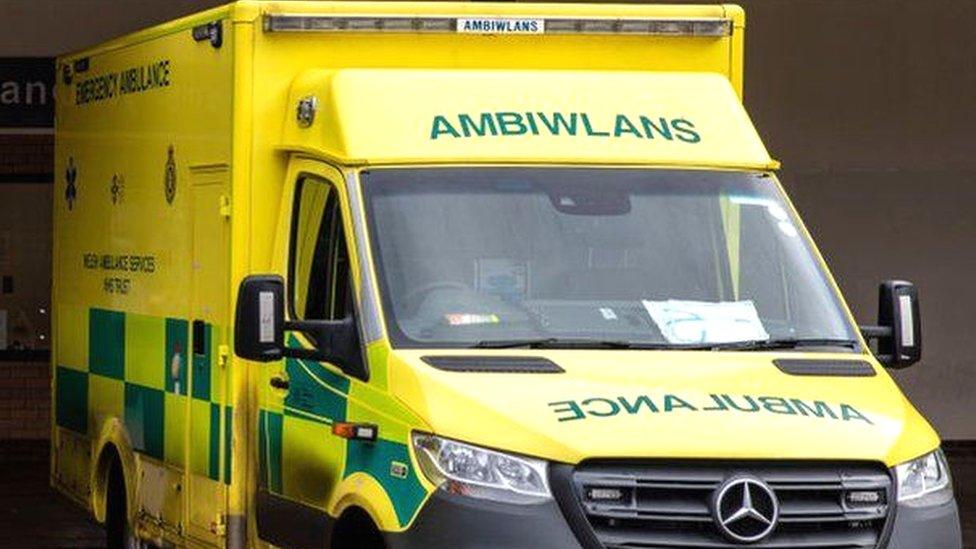Ambulance strike: Wales sees second day of industrial action
- Published
- comments
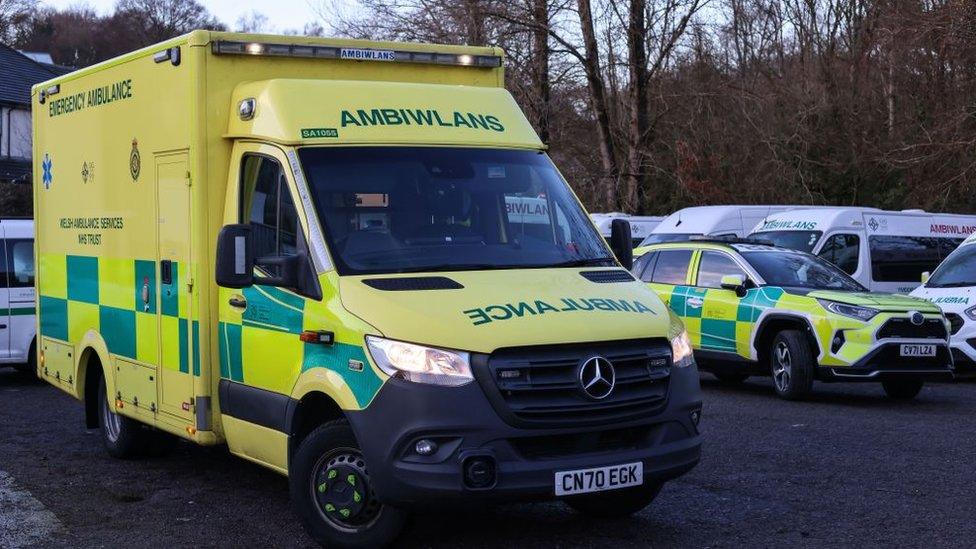
GMB Union members in the Welsh Ambulance Service are staging their second walkout in a month
More than 1,000 ambulance workers in Wales have gone on strike for the second time in a month in a pay dispute.
GMB members - about a quarter of the Welsh Ambulance Service - will only respond to life-threatening calls.
Health bosses fear it will be worse than the strike before Christmas.
The Welsh government plans to discuss a one-off payment offer with unions on Thursday, but said anything more would require further funds from Westminster.
GMB officer for NHS Wales, Nathan Holman, said members were not taking a stand against the public but against the government, adding that life-threatening calls - about 15% of all calls - would be responded to.
"We have data for category one calls from the last time we took this action and the percentage of calls that were responded to nationally increased on strike day because vehicles were not being held [at hospitals]," Mr Holman said.
He said the Welsh government was considering an offer.
He said: "We're looking for an inflation-busting pay rise, but any offer we get we want at least the same as . £1,000 or more on top of what we have now."
When the GMB took action in December, Unison, which also represents ambulance staff, had not reached the threshold to do the same, but has since re-balloted and will strike on 19 and 23 January.
The strike is for 24 hours from midnight on Tuesday but the union has made it clear staff working night shifts would not leave patients and compromise care.
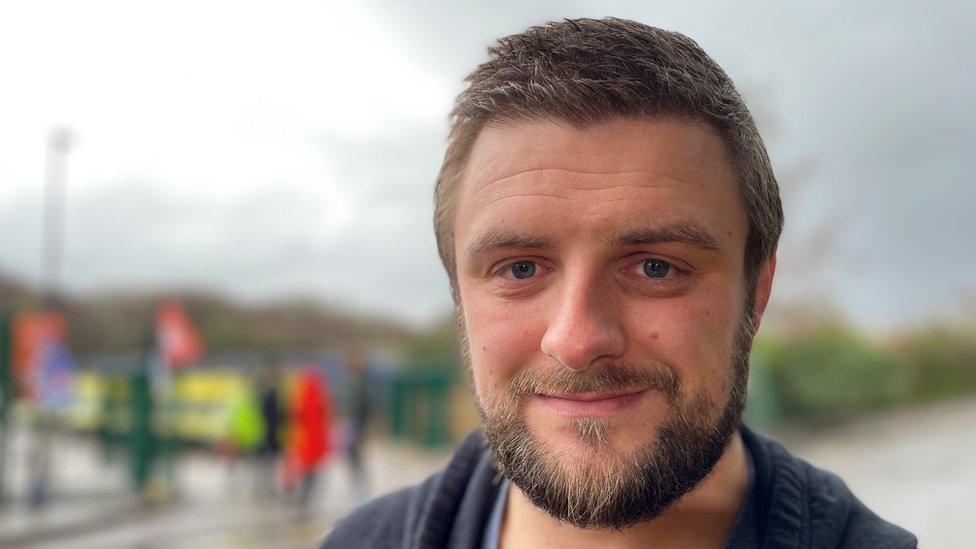
Paramedic Jamie Stone said they were seeing people in car parks arriving having had strokes
Jamie Stone, 31, from Newport, is a paramedic in Cardiff and believes what people were dealing with was "inhumane".
He said: "We're seeing people turn up in cars that are having heart attacks, patients having strokes in the back of cars and then we're having to deal with it in the car park of a hospital, because they are being told they have to wait eight hours-plus for an ambulance.
"It's rare that it's been a patient who is critically ill, but it has happened a number of times, where we've had to drag somebody out of a car on to a stretcher and take them straight into the emergency department for the life-saving treatment they need."
Urgent responder Laura Morton, 40, has experienced 19-hours waits with patients outside Cwmbran's Grange Hospital.
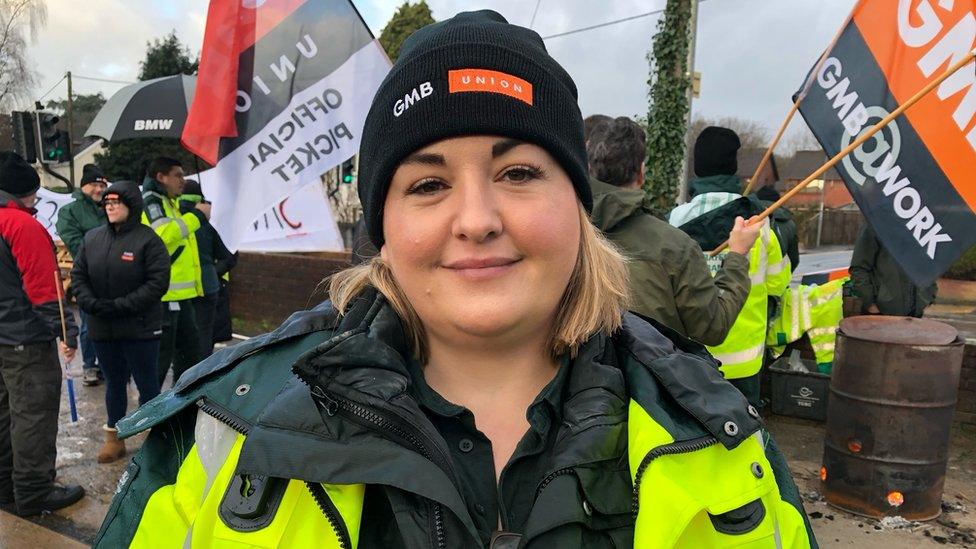
Laura Morton joined strikes taking place on across Wales
She said ambulances were becoming like "mini-hospitals" due to the lack of hospital beds.
Emergency medical ambulance technician in Powys, Gyles George, said staff were working late because they felt compelled to stay with patients.
"You can't just abandon them and you don't know what time you are going to get home," he said.
"Healthcare used to be a vocation and it has become a chore."
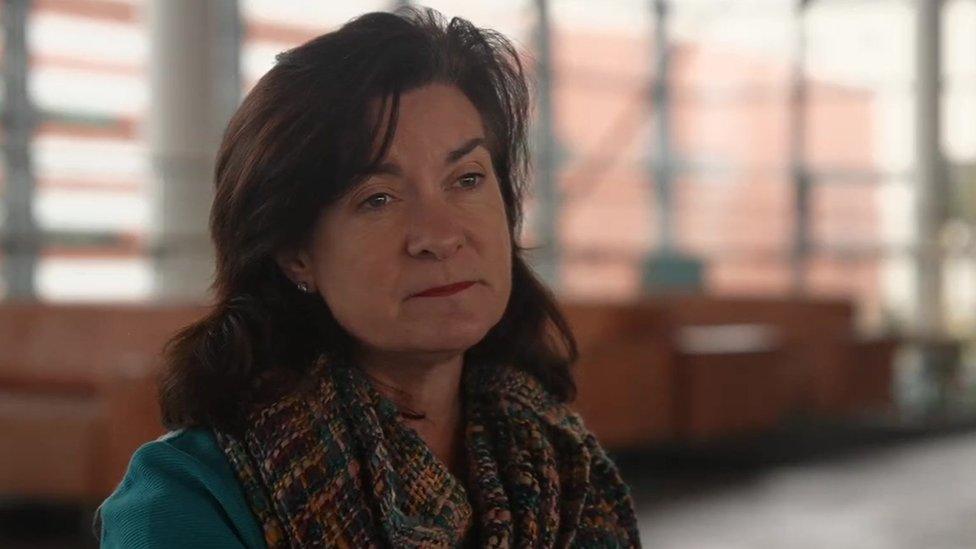
Health minister Eluned Morgan says the Welsh government can only afford a one-off payment
Welsh Ambulance Service boss Jason Killens said his staff had not been trained to nurse patients for long periods.
Eating, drinking and using the toilet was also problematic when parents were in ambulances.
"I would prefer not to start to train our staff and equip our vehicles to be nursing patients in them for very long periods of time and I think what we should be doing is focusing on solutions to the problem."
He said some paramedics were being trained to treat patients at their homes in a bid to ease problems at hospitals - last month more than a third of the emergency fleet was lost to delays outside hospitals.
Wales' Health Minister Eluned Morgan is meeting healthcare unions on Thursday about a one-off payment.
She said: "It's very difficult for us to go beyond commitments this year - it will be only an offer of a one-off payment."
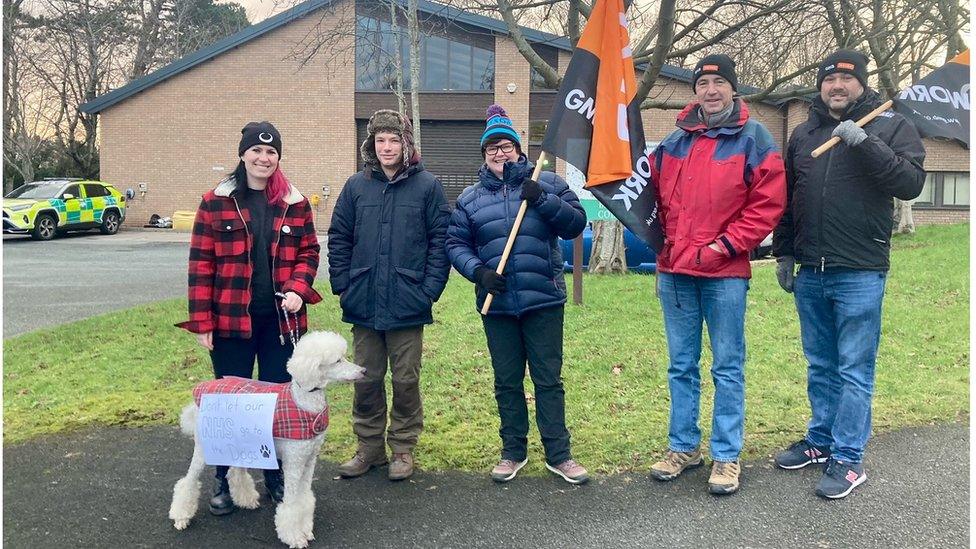
Cat and her dog Vince were part of the picket line in Colwyn Bay
The Welsh Ambulance Service has urged people to only call 999 if there is an immediate risk to life, while other patients may have to make their own way to hospital.
While some 999 call handlers are striking, all calls will be answered and it was agreed the most urgent calls would get responses.
Non-emergency patient transport will also be affected, though exemptions include patients being taken to renal dialysis and oncology.
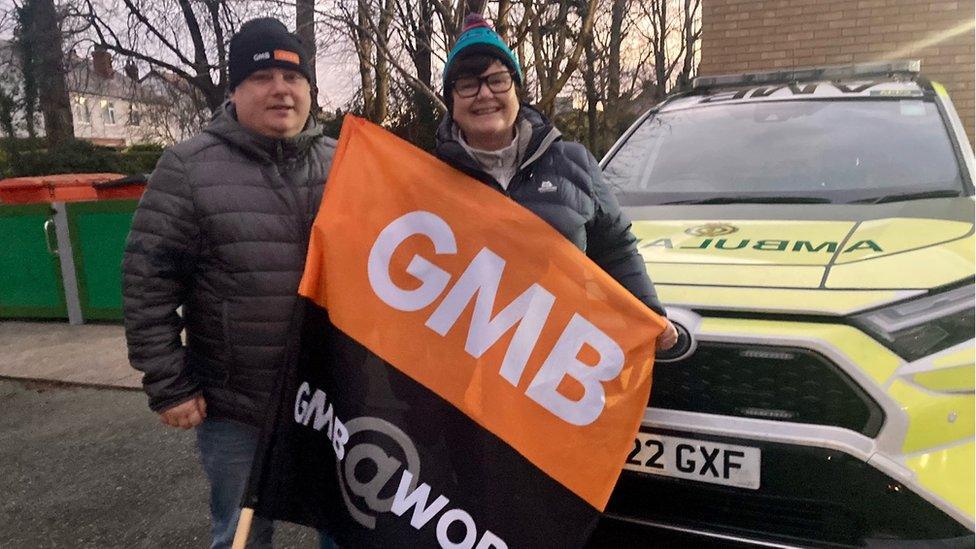
Strikers at Colwyn Bay say they are taking action for future generations
Welsh Conservative health spokesman, Russell George, said: "It is welcome that the Labour government has finally recognised that it has responsibility for funding the NHS in Wales and that they are now, at last, willing to talk pay with the unions, it should not have taken this long for it to happen.
The Welsh government said it recognised the "anger and disappointment" of public sector workers, adding: "We will continue to work with the NHS, unions and partners to ensure life-saving and life-maintaining care is provided during the industrial action, patient safety is maintained and disruption is minimised.
"But it is vital that all of us to do all we can to minimise pressure on our health service during the industrial action and consider carefully what activities we take part in."
Related topics
- Published22 December 2022
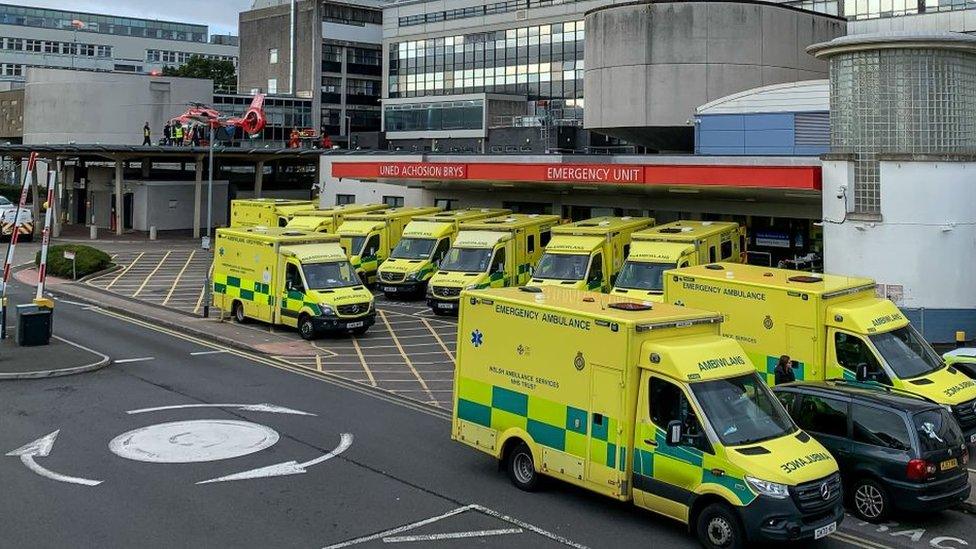
- Published18 December 2022
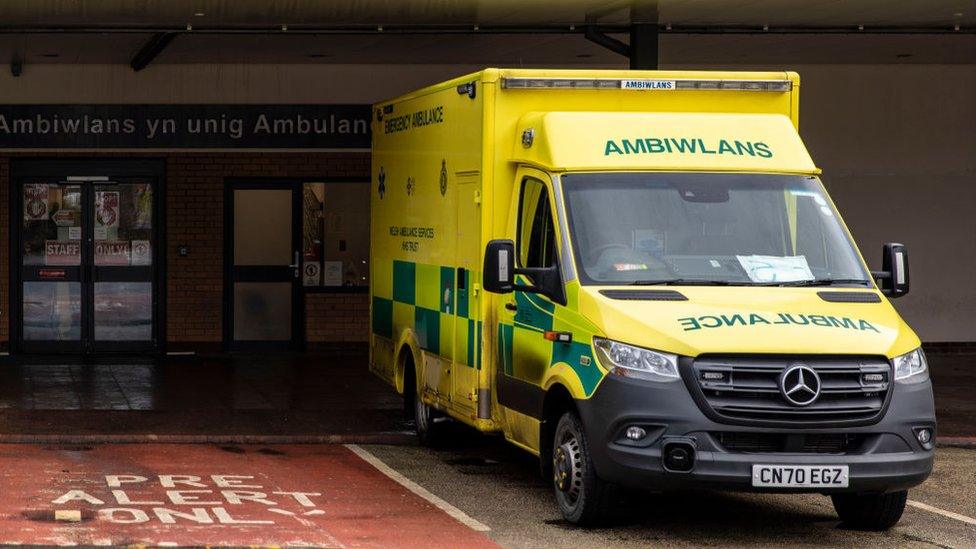
- Published13 October 2022
